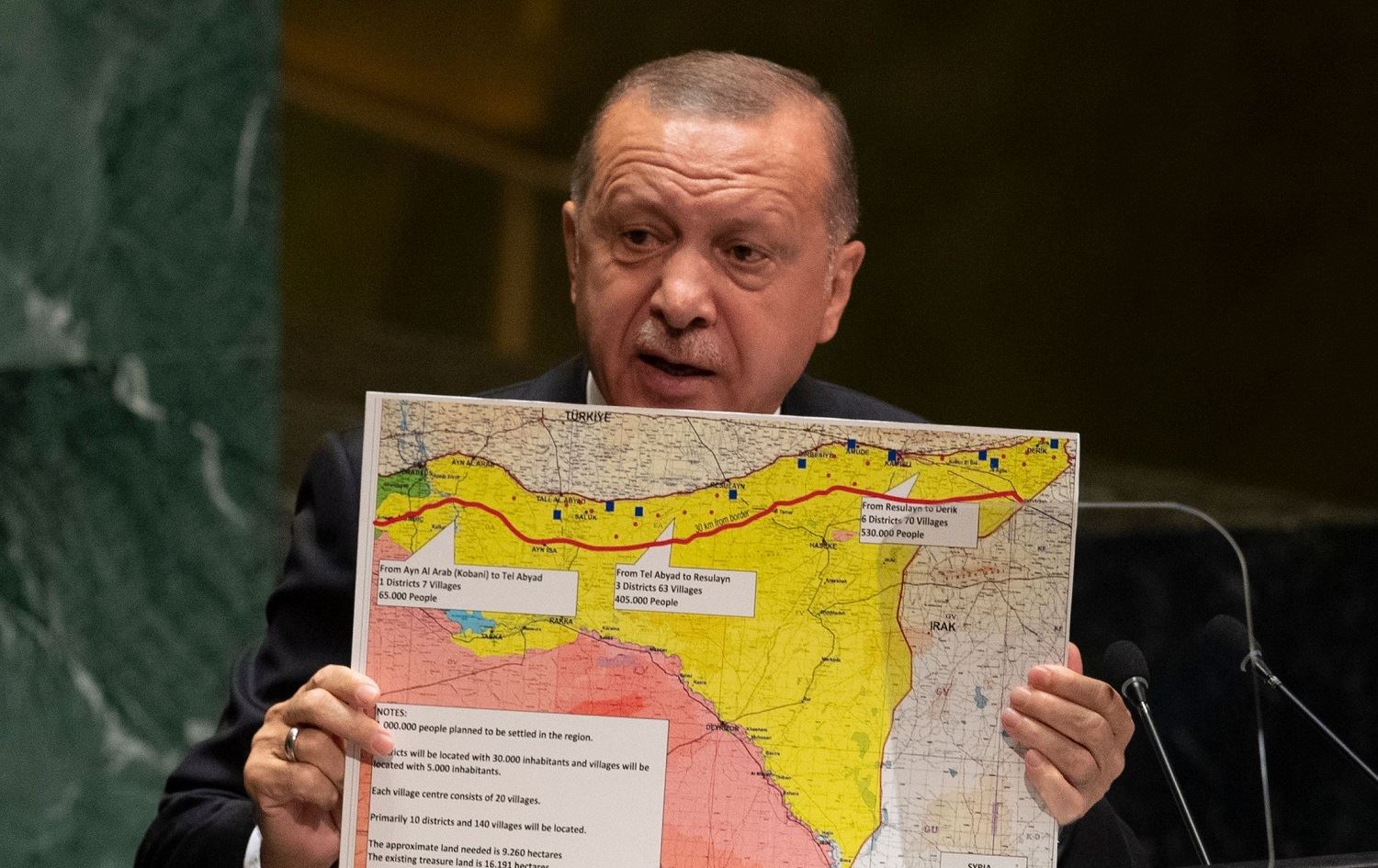
Turkish President Recep Tayyip Erdogan speaks to journalists in Ankara on May 23, 2022. Photo: Turkish presidency
ERBIL, Kurdistan Region - Turkish President Recep Tayyip Erdogan said on Monday that his country’s army and intelligence are making preparations to launch new military operations along its southern border to complete the 30 kilometers deep “safe zone” it planned years ago, likely aimed at Kurdish fighters in northern Syria.
Turkey and its Syrian proxies have carried out at least two major military operations against the Kurdish-led Syrian Democratic Forces (SDF) in northern Syria in recent years: invading Afrin in 2018, as well as Sari Kani (Ras al-Ain) and Gire Spi (Tal Abyad) in 2019. Days after clashes with the SDF during the latter offensive, Turkey agreed to withdraw beyond a range of 30 kilometers following a deal with the Russians and Americans. As per the agreement with Moscow, the “safe zone” would be jointly run by Turks and Russians.
Following a cabinet meeting late Monday, Erdogan told reporters in Ankara that they are “taking steps regarding the missing parts of the work we started to create a safe zone at a depth of 30 kilometers along with our southern borders,” referring to Turkey’s borders with Syria.
“The areas that are the center of attacks, harassment and traps against our country and our safe areas are at the top of our operational priority,” added Erdogan.
He noted that as soon as the Turkish army and intelligence are done with their preparations, “these operations will be launched,” saying that they will take decisions on the matter during a National Security Council (MKG) on Thursday.
Turkish Foreign Minister Mevlut Cavusoglu said in 2019 that the range of rockets allegedly fired by Kurdish fighters from Nusaybin in northern Syria against Turkish positions in Turkey’s Kurdish-populated Sanliurfa (Riha) province was about 30 kilometers.
He added that they do not want to go beyond the 30 kilometers mark.
Turkey claims that the People’s Protection Units (YPG), backbone of the SDF, is the Syrian offshoot of the Kurdistan Workers’ Party (PKK) - an armed group fighting for the increased rights of Kurds in Turkey but is designated as a terrorist group by Ankara.
Ankara also claims that the YPG poses a threat to its borders and it has held the group responsible for several rocket attacks on its borders, saying the rockets were fired from Syria.
Turkey and its Syrian proxies regularly attack the SDF in northeast Syria (Rojava). Kurdish officials and commanders have accused Ankara of violating the 2019 agreements with Russians and Americans.
Elham Ahmed, president of the Executive Committee of the Syrian Democratic Council (SDC), which is the political arm of the SDF, said in a tweet on Monday that the “Turkish attack on the multicultural region of Tall Tamr which is inhabited by Kurds, Arabs and Assyrians is a continuation of the genocidal approach against our people. These attacks need to be sto[p]ped especially by the states that guaranteed the ceasefire agreement.”
Erdogan’s latest speech comes as Ankara continues to oppose bids by Sweden and Finland to join NATO, over concerns of Russia’s invasion of Ukraine. Sweden has been one of the key supporters of Rojava since 2016, allocating tens of millions of dollars. However, Turkey’s veto has blocked the country’s entry into the security alliance. Ankara wants Stockholm to suspend all its support to Rojava in return for its approval for Sweden’s membership in NATO, which takes all its decisions based on a consensus.









Comments
Rudaw moderates all comments submitted on our website. We welcome comments which are relevant to the article and encourage further discussion about the issues that matter to you. We also welcome constructive criticism about Rudaw.
To be approved for publication, however, your comments must meet our community guidelines.
We will not tolerate the following: profanity, threats, personal attacks, vulgarity, abuse (such as sexism, racism, homophobia or xenophobia), or commercial or personal promotion.
Comments that do not meet our guidelines will be rejected. Comments are not edited – they are either approved or rejected.
Post a comment